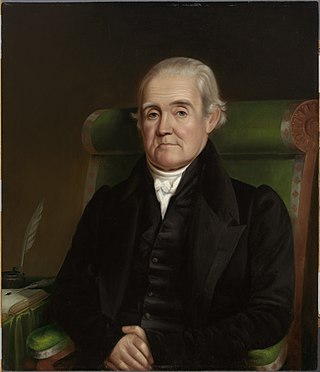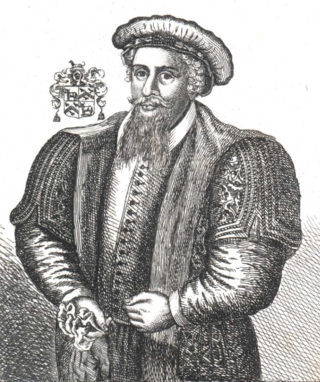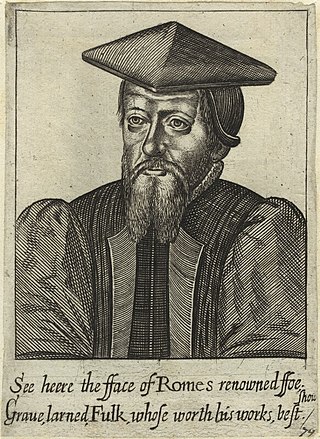Related Research Articles

A dictionary is a listing of lexemes from the lexicon of one or more specific languages, often arranged alphabetically, which may include information on definitions, usage, etymologies, pronunciations, translation, etc. It is a lexicographical reference that shows inter-relationships among the data.

An encyclopedia or encyclopaedia is a reference work or compendium providing summaries of knowledge, either general or special, in a particular field or discipline. Encyclopedias are divided into articles or entries that are arranged alphabetically by article name or by thematic categories, or else are hyperlinked and searchable. Encyclopedia entries are longer and more detailed than those in most dictionaries. Generally speaking, encyclopedia articles focus on factual information concerning the subject named in the article's title; this is unlike dictionary entries, which focus on linguistic information about words, such as their etymology, meaning, pronunciation, use, and grammatical forms.

Noah Webster was an American lexicographer, textbook pioneer, English-language spelling reformer, political writer, editor, and author. He has been called the "Father of American Scholarship and Education". His "Blue-Backed Speller" books taught generations of American children how to spell and read. Webster's name has become synonymous with "dictionary" in the United States, especially the modern Merriam-Webster dictionary that was first published in 1828 as An American Dictionary of the English Language.
Abraham Fraunce was an English poet.
Vernacular is the ordinary, informal, spoken form of language, particularly when perceived as having lower social status or less prestige than standard language, which is more codified, institutionally promoted, literary, or formal. More narrowly, a particular language variety that does not hold a widespread high-status perception, and sometimes even carries social stigma, is also called a vernacular, vernacular dialect, nonstandard dialect, etc. and is typically its speakers' native variety. Regardless of any such stigma, all nonstandard dialects are full-fledged varieties of language with their own consistent grammatical structure, sound system, body of vocabulary, etc.

Giovanni Florio, known as John Florio, was an English linguist, poet, writer, translator, lexicographer, and royal language tutor at the Court of James I. He is recognised as the most important Renaissance humanist in England. Florio contributed 1,149 words to the English language, placing third after Chaucer and Shakespeare, in the linguistic analysis conducted by Stanford professor John Willinsky.
Folk etymology – also known as (generative) popular etymology, analogical reformation, (morphological)reanalysis and etymological reinterpretation – is a change in a word or phrase resulting from the replacement of an unfamiliar form by a more familiar one through popular usage. The form or the meaning of an archaic, foreign, or otherwise unfamiliar word is reinterpreted as resembling more familiar words or morphemes.
"The First Nowell", modernised as "The First Noel", is a traditional English Christmas carol with Cornish origins most likely from the early modern period, although possibly earlier. It is listed as number 682 in the Roud Folk Song Index.

Dr Mark Ridley was an English physician and lexicographer, born in Stretham, Cambridgeshire, to Lancelot Ridley. Following studies at Cambridge, Ridley was employed by the Muscovy Company as physician to the English merchants in Russia. Later he became personal physician to the Tsar of Russia.
Randle Cotgrave was an English lexicographer. In 1611 he compiled and published A Dictionarie of the French and English Tongues, a bilingual dictionary that represented a breakthrough at the time and remains historically important.

William Fulke was an English Puritan divine.
Richard Mulcaster is known best for his headmasterships of Merchant Taylors' School and St Paul's School, both then in London, and for his pedagogic writings. He is often regarded as the founder of English language lexicography. He was also an Anglican priest.
John Ryder (1562–1632) was a lexicographer who published an English-Latin Dictionary that was widely used in the 17th century. A favourite of Elizabeth I, he was Dean of St. Patrick's Cathedral, Dublin, and the Anglican Bishop of Killaloe.
Edward Grant was an English classical scholar, Latin poet, and headmaster of Westminster School. He was also the first biographer of Roger Ascham.
Claudius Hollyband was a 16th-century French-English linguist, philologist, phonologist, lexicographer and instructor of English, French, Italian and Latin. He was the author of many books and treatises regarding language, including one of the earliest French-English dictionaries, A Dictionarie French and English, published in London in 1593.
Before Samuel Johnson's two-volume A Dictionary of the English Language, published in 1755 and considered the most authoritative and influential work of early English lexicography, there were other early English dictionaries: more than a dozen had been published during the preceding 150 years. This article lists the most significant ones.
In literary criticism and rhetoric, a tautology is a statement that repeats an idea using near-synonymous morphemes, words or phrases, effectively "saying the same thing twice". Tautology and pleonasm are not consistently differentiated in literature. Like pleonasm, tautology is often considered a fault of style when unintentional. Intentional repetition may emphasize a thought or help the listener or reader understand a point. Sometimes logical tautologies like "Boys will be boys" are conflated with language tautologies, but a language tautology is not inherently true, while a logical tautology always is.
John Sanderson was an English Roman Catholic priest, known as a writer on logic.
A Dictionarie French and English: published for the benefite of the studious in that language is a bilingual French to English dictionary compiled by the Huguenot refugee Claudius Hollyband while residing in London in the late 16th century.
John Eliot (1562-1594?) was an English language teacher, translator and author of the Ortho-epia Gallica (1593), a manual for teaching French to Englishmen in the form of dramatic, entertaining dialogues, which has long been recognized as a source book for Shakespeare.
References
- ↑ "Barrett, John (BRT551J)". A Cambridge Alumni Database. University of Cambridge.
- ↑ Ralph Churton, Life of Alexander Nowell, p. 220
- ↑ Restituta: or Titles, Extracts, and Characters of Old Books in ..., Volume 3
![]() This article incorporates text from a publication now in the public domain : "Baret, John". Dictionary of National Biography . London: Smith, Elder & Co. 1885–1900.
This article incorporates text from a publication now in the public domain : "Baret, John". Dictionary of National Biography . London: Smith, Elder & Co. 1885–1900.